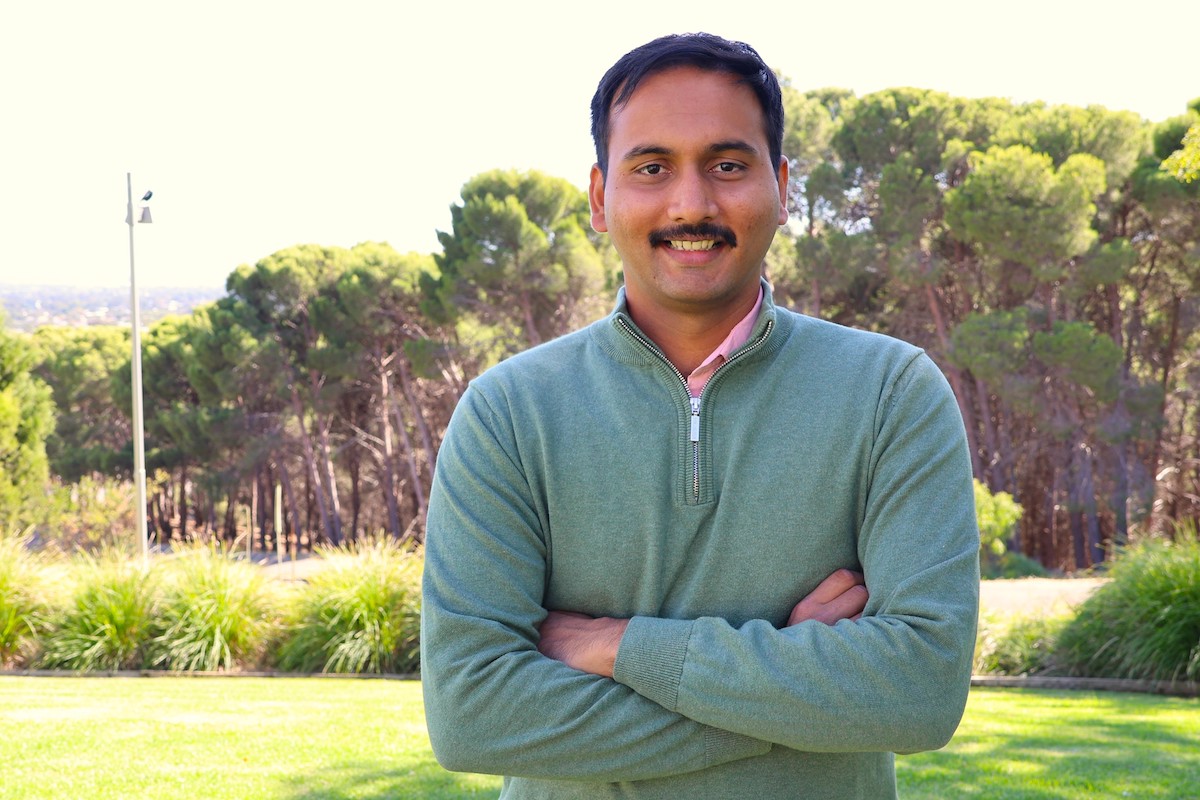
The desire to harness big data in health care brought Natansh Modi, an NHMRC PhD candidate, to the Clinical Cancer Epidemiology Lab at Flinders. We spoke with him about his dramatic career change to now focus on AI and big data in health.
What is your role at Flinders?
I’m a PhD candidate at Flinders University, focusing on developing high-quality, actionable health information. My PhD is supported by the National Health and Medical Research Council. Alongside my studies, I tutor pharmacology and therapeutics courses in the Master of Nurse Practitioner program.
Tell us about your work.
In an era when big data and artificial intelligence are reshaping patient care, my work centres on advancing the quality of health information and addressing the challenges posed by disinformation. Utilising machine learning techniques on clinico-pathological data, I extract valuable insights that aid in the development of clinical prediction models. These models serve to reduce the uncertainty in treatment decisions and provide personalised estimates that refine patient care.
Central to realising the full potential of big data in healthcare is advocating for democratised access to clinical trial data within the pharmaceutical industry. This principle of open access is fundamental as machine learning techniques’ effectiveness increases with access to a broader and more diverse dataset. Such openness in clinical trial data sharing will also help in driving forward scientific discoveries and ensuring clinicians and researchers have access to comprehensive, unbiased information.
My work aims to foster a healthcare system that is informed by data-driven insights and centred around patient needs, thereby advancing precision medicine. Improving access to and the quality of health information, coupled with greater data transparency, is important for harnessing the power of big data. This approach not only improves the healthcare ecosystem but also paves the way for precision medicine to be both sustainable and widely applicable.
How did you get into this area?
My background as a clinical pharmacist had a primary focus on optimising medication use, and this sparked my interest in how medication-related data, when analysed and applied correctly, can significantly enhance patient care. My move to leverage big data in healthcare was driven by realising that the vast potential of machine learning and artificial intelligence could revolutionise our approach to healthcare, especially in personalising patient treatment. By using machine learning techniques to analyse clinico-pathological data, I began to see how predictive models could dramatically reduce uncertainties in treatment outcomes.
My work now centres on advancing the quality of health information and combating challenges posed by misinformation and disinformation, particularly in medication use and patient care. By advocating for open access to data in the pharmaceutical industry, I want to amplify the impact of big data to enhance the healthcare ecosystem.
Describe your work in three words.
Transformative, Insightful – and Impermanent.
What are you most proud of?
I’m particularly proud of my contributions to increase transparency within the pharmaceutical industry and address AI-generated misinformation. These efforts can set new industry standards and relevance in the digital age, and signify important steps towards a more informed and transparent healthcare system.
What inspires you?
I find my greatest inspiration in the tangible difference my work can make in patients’ lives. Knowing that the advancements and insights I contribute to have the potential to directly benefit those in need— through improving their care, treatment, and quality of life—drives me forward.
What’s your favourite thing to do in your spare time?
I enjoy running and playing tennis, activities that keep me physically active and mentally sharp. I also love writing short stories, a creative outlet that allows me to explore different perspectives and narratives, and provides fulfilling balance to my scientific work.

